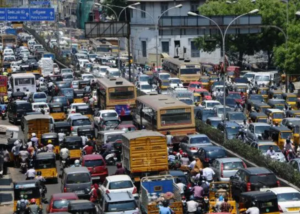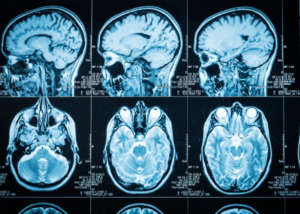TBIs are a Global Epidemic

TBIs are a Global Epidemic
Jaanu Ramesh
Each time I visit my uncle in the Indian megacity of Chennai, which is situated on the southeastern shore of the subcontinent, I come home with a completely muddled sense of traffic rules. Chennai is a densely populated metropolis – a major “driver of economic growth” in the nation – which is also the capital of India’s motor industry. Small wonder then, that the roads in the city are almost always packed by drivers and motorcyclists honking, bobbing, and weaving around each other.

Many have been the times on my uncle’s bike that I’ve fearfully screwed up my eyes and started praying, sure that our collision with the driver inexplicably zooming right towards us is imminent and unavoidable, only to escape a fiery implosion by the mere centimeter of space our neighbor on the road has left between my knee and the rear-view-mirror of their car.
The lack of organization on the roads isn’t just jarring for me. Road injuries and falls are major causes of traumatic brain injury (TBI) and spinal cord injury (SCI), which contribute heavily to the global burden of disease. That burden, as one might expect, is borne disproportionately by low- and middle-income countries.
It might be hard to believe that incidence of TBIs is on the rise, when many are preventable; with the emphasis on structural changes in policy to influence public health in countries like the United States, road injuries should be declining. Researchers in the 2016 Global Burden of Disease group identified increases in population density, an aging population, and the growth of motor vehicle/motorcycle/bike use worldwide, as potential reasons for the growing impact of TBIs and SCIs. The toll this takes isn’t limited to its horrible toll on victims and their families. The economic burden of TBIs can be immense because of the specialized care it requires.
During my visits to India, I’ve seen potential for simple interventions to have a tremendously positive impact. On one visit, I witnessed the social impact of a new law requiring helmets for motorcyclists. The intuitive law in my home state of Massachusetts caused quite some discontent when it was first implemented, but I’ve seen the immensely important long-term impact that it has had. Low- and middle-income countries are the least prepared to address the health outcomes of patients with TBIs even as they are the most likely to experience the burden of these conditions.
In the US, we might be sleeping on the concept of TBIs as a public health epidemic. I believe that the global toll should be a priority. ThinkFirst is an American organization, founded by neurosurgeons, which promotes simple interventions which can have a tremendously positive impact. Decades of research shows that systematic interventions (like messaging to emphasize the importance of helmets and seatbelts) can make powerful change when it comes to public health. When motor vehicle collisions are by far the most common cause for TBIs, we should prioritize public health messaging that can reduce this burden in LMICs.

Small measures can introduce miles of change!









